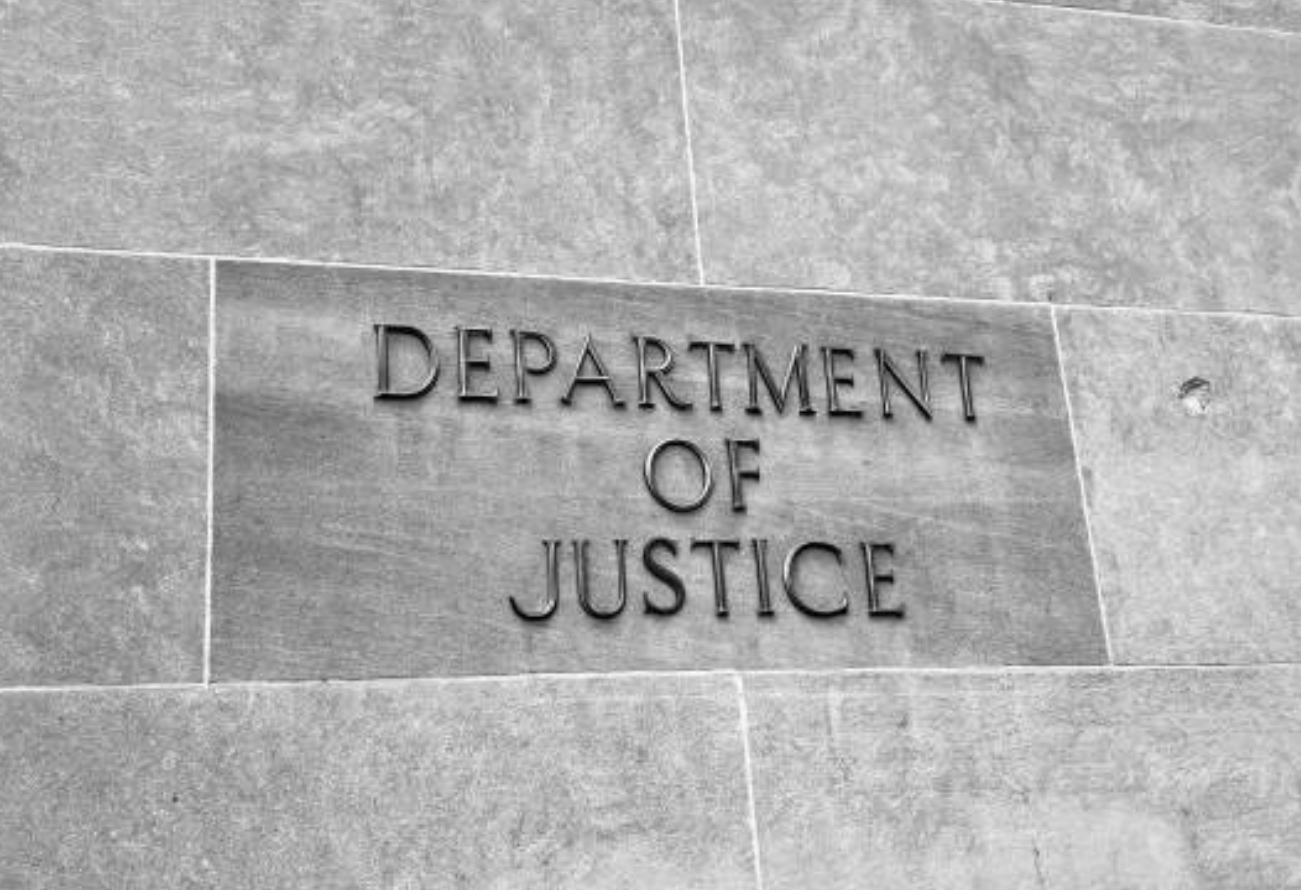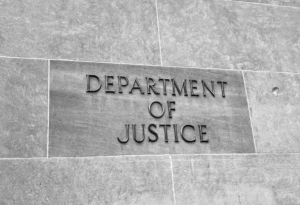Join Our Telegram channel to stay up to date on breaking news coverage
The Cryptocurrency Enforcement Chief in the United States has announced a strong crackdown on illicit activities within digital platforms, citing a significant increase in crypto-related crimes over the past four years.
The US Department of Justice Targets Crypto Platforms to Combat Illicit Behavior
Eun Young Choi, the director of the national cryptocurrency enforcement team at the Department of Justice (DoJ), revealed in an interview with the Financial Times that the agency is focusing its efforts on crypto exchanges and entities known as “mixers and tumblers” that obscure transaction trails.
The DoJ aims to hold accountable companies that engage in criminal activities themselves or enable such behavior, particularly involving money laundering.
Choi emphasized that these platforms not only facilitate their own illegal activities but also enable other criminal actors to profit easily from their crimes and cash out in ways that pose clear problems. By prioritizing these types of platforms, the DoJ hopes to have a significant multiplier effect in combating crypto-related crimes.
The Director stated that this focus on platforms would send a strong message to businesses that evade anti-money laundering and client identification regulations and fail to invest in solid compliance and risk mitigation procedures.
Under President Joe Biden’s administration, the US has emerged as one of the jurisdictions with the most stringent stance on cryptocurrencies globally. Choi now leads a new unit dedicated to addressing the criminal misuse of digital assets.
Choi highlighted the significant growth in the scale and scope of digital assets being used for various illicit purposes over the past four years, which coincides with the increased adoption of cryptocurrencies by the general public.
DoJ Expands Efforts to Combat Crypto Investment Scams and Hacks
The collapse of FTX, an exchange once perceived as reliable in a volatile sector, and the targeting of Binance, the world’s largest crypto exchange, have brought concerns to the crypto industry. However, Choi clarified that the size of a company will not shield it from potential charges, regardless of its market share or systemic importance.
The DoJ cannot allow a pass for companies that have grown to be too big to fail, especially if they have achieved their significant market share by flouting US criminal law. Choi emphasized the importance of not sending the wrong message and treating crypto-related crimes and any white-collar crime differently.
Bitzlato, a digital exchange described by US authorities as a key link to the dark net, was taken down when its founder was arrested by the DoJ for allegedly transmitting over $700 million in illicit crypto funds.
In addition to targeting platforms, the DoJ’s crypto unit aims to take more enforcement actions against investment scams. According to victims’ reports to the FBI, funds lost to such schemes have skyrocketed from around $900 million in 2021 to over $2.5 billion last year.
Choi highlighted the “pig butchering” schemes, named after a Chinese phrase referring to fattening pigs for slaughter, where scammers build long-term relationships with victims.
The DoJ is also focusing on thefts and hacks in the decentralized finance (DeFi) sector, particularly those involving “chain bridges,” which allow users to exchange different types of digital tokens. They are also targeting nascent projects with codes that are vulnerable to such attacks.
Given that North Korean state-sponsored hackers have emerged as significant actors in this space, these thefts and hacks pose a significant issue for the DoJ.
Unveiling the Reality of Crypto-Related Crimes – Insights from the US Department of Justice
In the winter of 2022, the appointment of Eun Young Choi as the first director of the National Cryptocurrency Enforcement Team (NCET) within the US Department of Justice (DOJ) hinted at the government’s forthcoming antagonistic approach toward the cryptocurrency industry.
Choi, a seasoned cybersecurity expert and former federal prosecutor, took on the task of safeguarding users in the rapidly evolving landscape of digital assets.
While the financial tide shifted, exposing the vulnerabilities of the crypto space, the focus of Choi’s department appears to be on relatively smaller issues, such as social media scams, darknet misuse, and online fraudsters.
These activities, often overshadowed by major scandals, have quietly thrived in the background of Crypto Twitter and Discord, constituting what some call crypto’s “trash moat.”
The NCET, along with other agencies, has successfully cracked down on several US-based scams, recovering millions of dollars. However, the FBI’s estimations reveal that investment fraud amounted to a staggering $3.31 billion in 2022, with crypto-related scams accounting for more than a third of that figure, tarnishing the reputation of the industry.
It is essential to acknowledge that only a small fraction, less than 1%, of total crypto transactions can be tied to illicit use, according to Chainalysis. Advocates emphasize this statistic, highlighting that the majority of crypto users engage in legitimate trading, especially in countries grappling with inflation.
However, it is crucial to recognize that Chainalysis’s insights may be conservative, based on its limited ability to trace blockchain addresses back to individuals.
During a conference hosted by the Financial Times, Choi confirmed that cryptocurrency and digital assets permeate every aspect of criminal activity investigated by the NCET.
Ransomware attacks, confidence games, and even sanctions evasion have all been linked to these emerging financial technologies. However, it is worth considering that the immutable nature of blockchain technology makes it a poor tool for evading economic blockades, contrary to popular belief.
While the statistic indicates that only a small percentage of crypto use is illegal, anecdotal evidence suggests otherwise. Instances of SIM swapping, rug pulling, and illicit transactions with cryptocurrencies are prevalent in the industry.
The prevalence of crypto fraud can be attributed, in part, to the misinformation surrounding the technology and the allure of hype and FOMO. It is important to acknowledge this and study blockchain and cryptocurrency in detail before making any investment decisions.
Related Articles
Join Our Telegram channel to stay up to date on breaking news coverage


